People Online Offer Awesome Advice To Grieving Person Who Feels Guilty For Loving Another Dog After The Previous One Died
Dogs provide a kind of unconditional love that we don't usually encounter in interpersonal interactions. It can be devastating to say goodbye to someone who is so important to us.
Not everyone has the same empathy or understanding for those who mourn the loss of a pet as they would for a human family member. Naturally, adding a new dog to the family can aid in the healing process, but there isn't a specific moment that is ideal for doing so.
Grief is a very personal experience. Since it's not a straightforward process, it makes sense to give yourself and any other family members some time to work through their emotions before making a decision.
There will never be a dog you share your life with that you can forget or replace. However, when the time is right, and you get a new dog, you can create new memories with them, and your bond with them will help your heart heal even more.
When to get a new dog is a question that can never be answered with certainty. This is a highly personal choice that frequently arises on its own.
Someone took to the Quora community to share how they feel guilty for loving another dog. Their previous dog died, and they have gotten another one that they love, but they're feeling guilty about it.
Keep scrolling to check out the full post below.
The grieving dog owner writes down their short story

It is a common mistake for people to get a new dog before they have fully come to terms with losing their old one. Individuals may find the grieving process difficult.
They can't let go of the memories because they are so broken by the loss. Let's hear what people have to say to the original poster, as we've gathered a bunch of their replies below.
1. The dog would have wanted them to be happy

2. You need a dog to feel loved
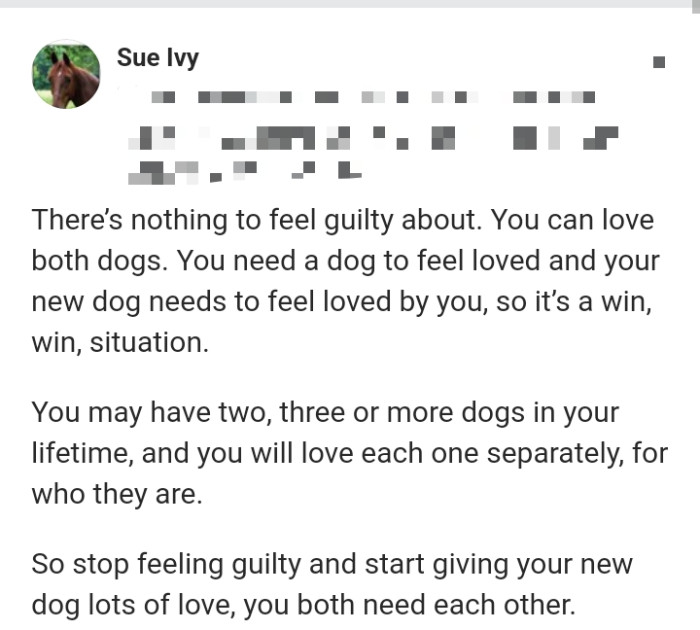
Navigating Grief and Guilt
Grief is a complex emotional process, often accompanied by feelings of guilt, especially when moving on after the loss of a beloved pet.
Research in grief psychology indicates that it’s common for individuals to experience guilt when they begin to love another animal after losing one.
This guilt can stem from a sense of perceived betrayal to the lost pet, highlighting the deep emotional bonds formed with animals.
Coping with Grief and Loss
Grieving the loss of a pet can be just as profound as losing a human companion. Research from the American Psychological Association indicates that the bond between humans and animals can evoke intense emotional responses. In this case, the individual's feelings of guilt for loving another dog reflect the complex nature of grief and attachment.
Understanding that grief is a natural process can help individuals navigate their emotions during such challenging times.
3. The unconditional love dogs give us
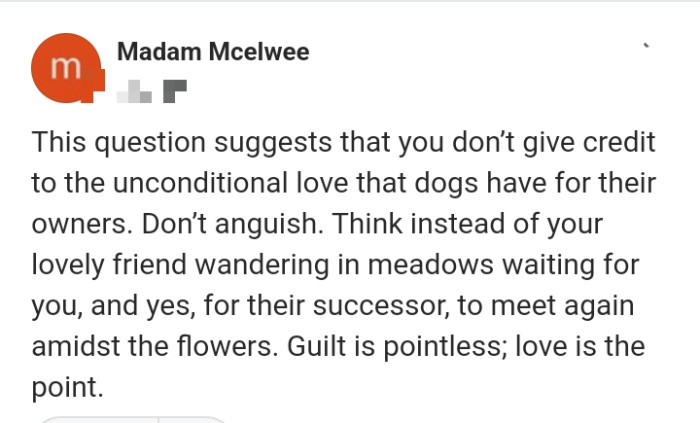
4. It is not disrespectful to the memory

5. The OP only welcomed the new one
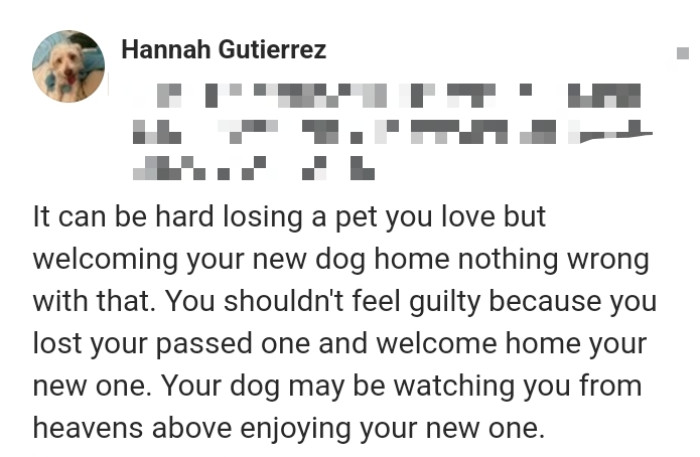
Understanding the normalcy of these feelings is crucial for the grieving process.
According to studies by the American Psychological Association, recognizing that it's okay to feel joy while grieving can facilitate healing.
Engaging in self-compassion during this time is fundamental, allowing individuals to embrace new connections without the burden of guilt.
Psychologists emphasize the importance of allowing oneself to grieve fully. According to research published in the Journal of Loss and Trauma, suppressing grief can lead to prolonged emotional distress. Engaging in healthy mourning rituals, such as remembering the lost pet or discussing feelings with supportive friends, can facilitate healing.
Recognizing the legitimacy of these feelings and allowing oneself to feel them can enhance emotional well-being.
6. Need a friend to make new memories with
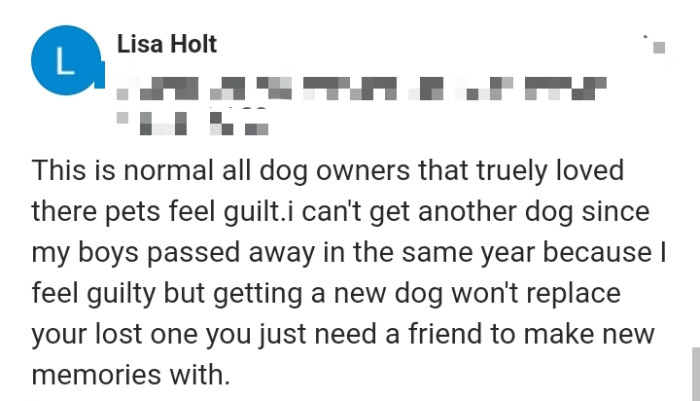
7. Giving the current dog a great life
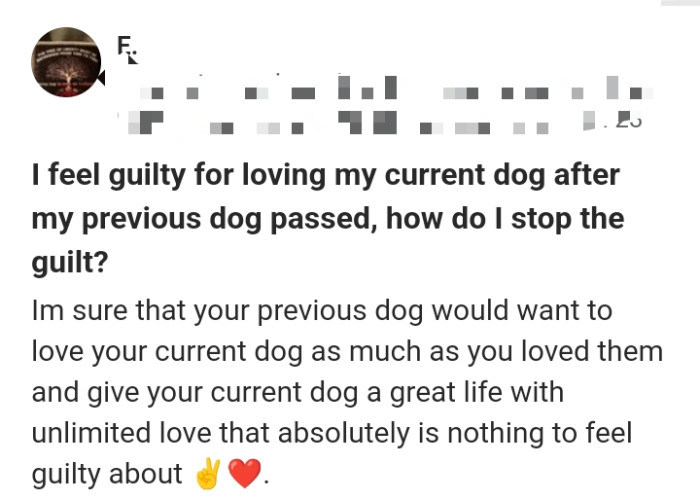
8. It won't diminish the love for the dog
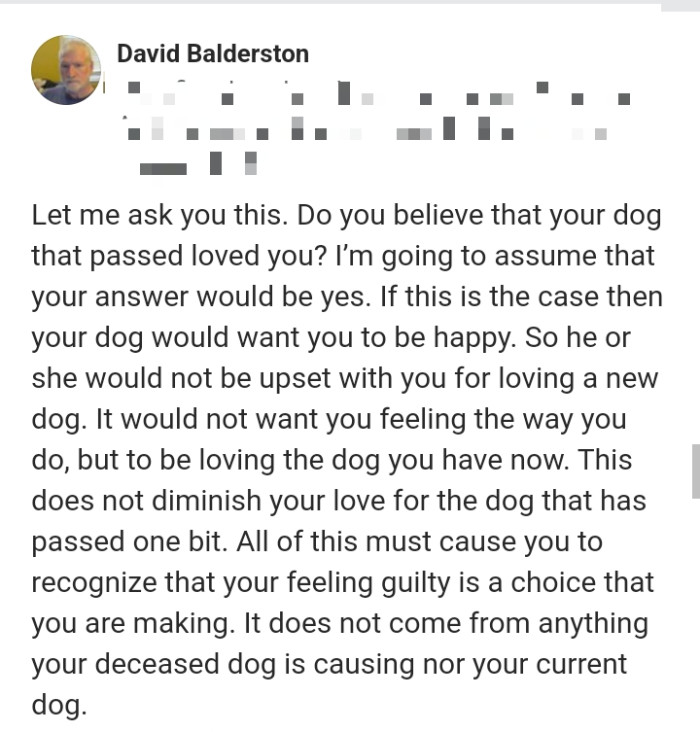
The Role of Support Systems in Grief
Support systems play an integral role in navigating grief and guilt.
Research indicates that individuals with strong support networks tend to cope better with loss, as they can share their feelings and experiences with others.
Encouraging open conversations about grief in social circles can foster understanding and empathy.
The Nature of Love and Attachment
Love and attachment are complex emotions that can coexist with grief. According to Dr. Alan Wolfelt, a grief counselor, love does not diminish with loss; rather, it evolves. The ability to love another pet after experiencing loss is a testament to the resilience of the human heart.
This perspective can help individuals reframe their feelings of guilt and embrace the possibility of new attachments.
9. Looking at it from a different perspective
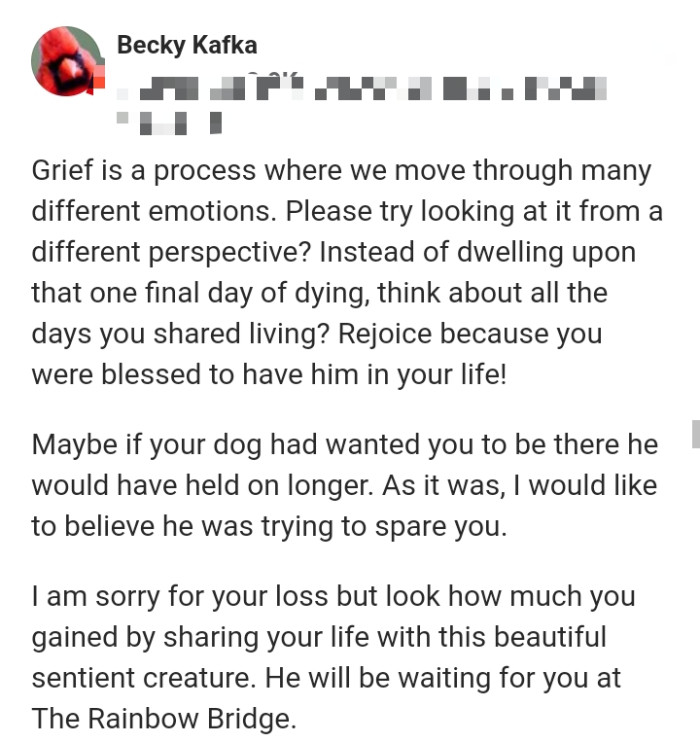
10. Each dog is unique and beautiful
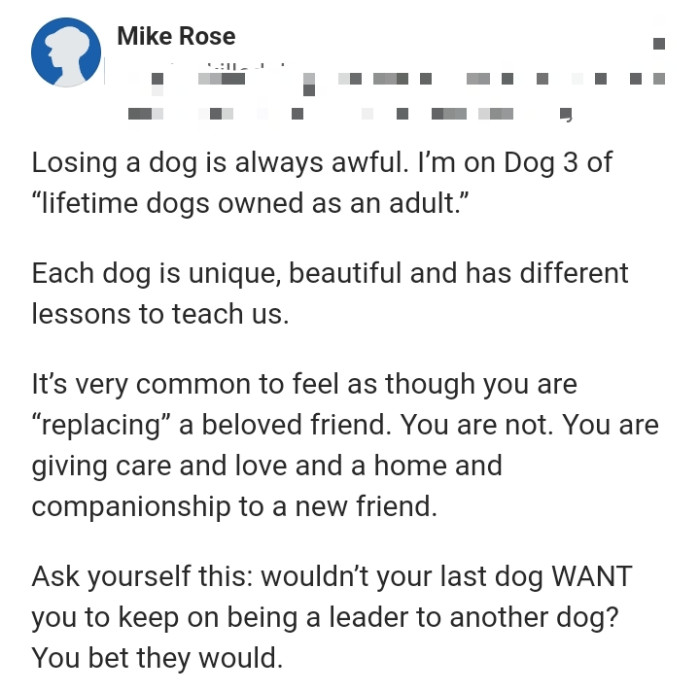
11. The love is the gift you give
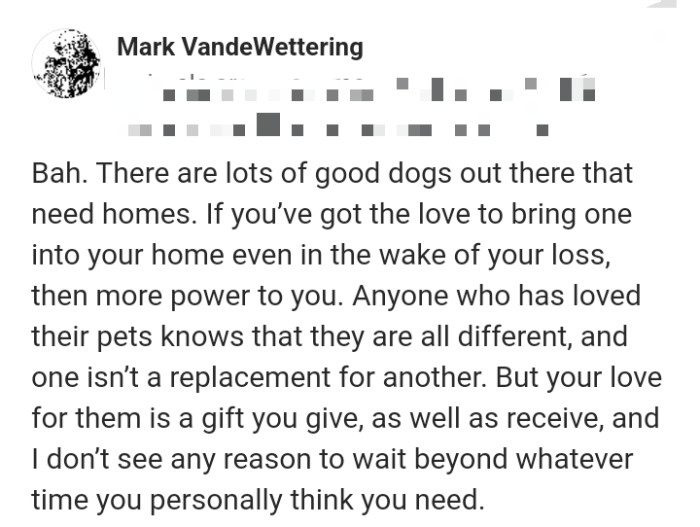
Participating in support groups specifically for pet loss can also provide comfort and validation.
Studies show that shared experiences can alleviate feelings of isolation and promote healing.
These groups offer a safe space to discuss emotions and learn coping strategies from others who have faced similar situations.
Creating new memories with a new pet can be a healthy way to cope with loss. Research published in the Journal of Veterinary Behavior suggests that forming new attachments can aid in the healing process by providing companionship and joy. Engaging in activities that honor the memory of the lost pet while embracing the new one can facilitate emotional healing.
Establishing routines with a new pet can also foster a sense of purpose and help individuals move forward while cherishing their memories.
12. Don't beat yourself up
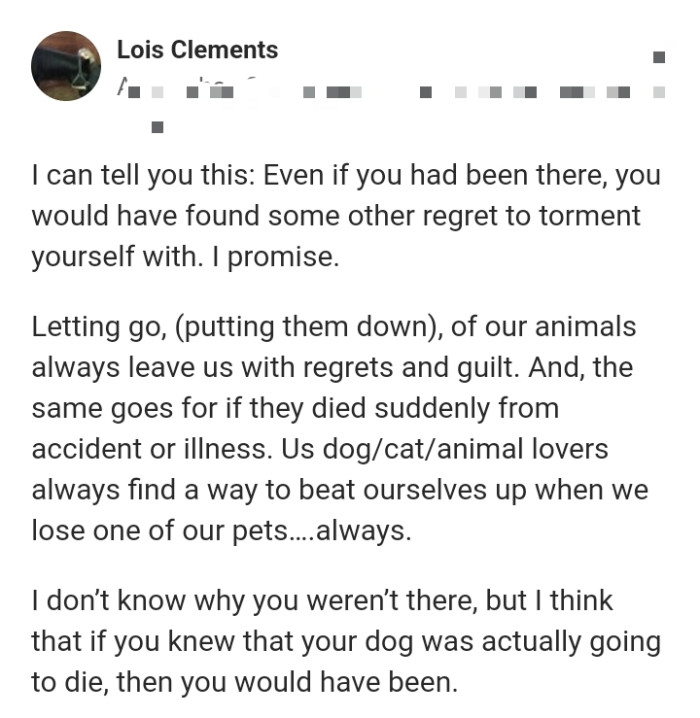
13. It feels as if we're to blame
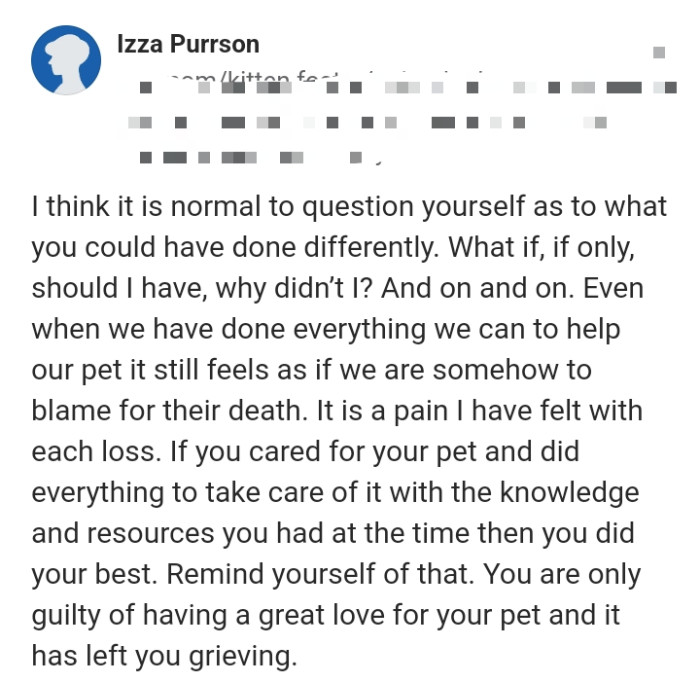
14. Asking God to forgive you

Embracing New Relationships
Embracing new relationships after loss requires a mindset shift that acknowledges the unique bond shared with each pet.
Research suggests that understanding that love for one pet doesn’t diminish the love for another can help ease feelings of guilt.
Celebrating the memories of the lost pet while also nurturing a new relationship can create a balanced emotional landscape.
15. This person lists steps for the OP to deal with the guilt
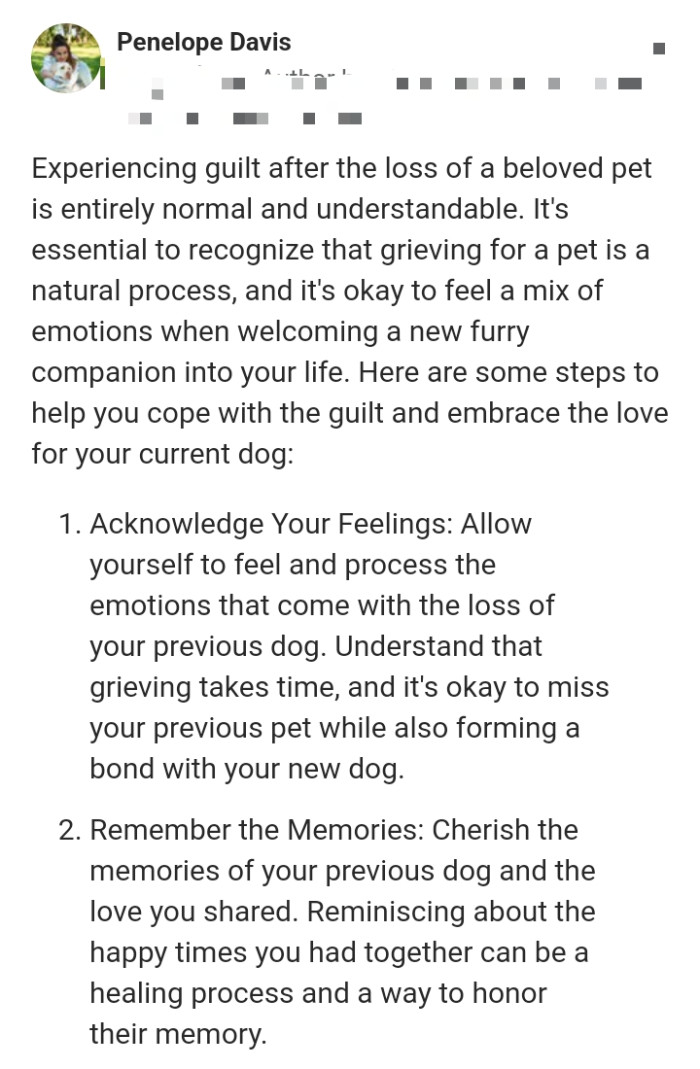
16. They are scared to get another one
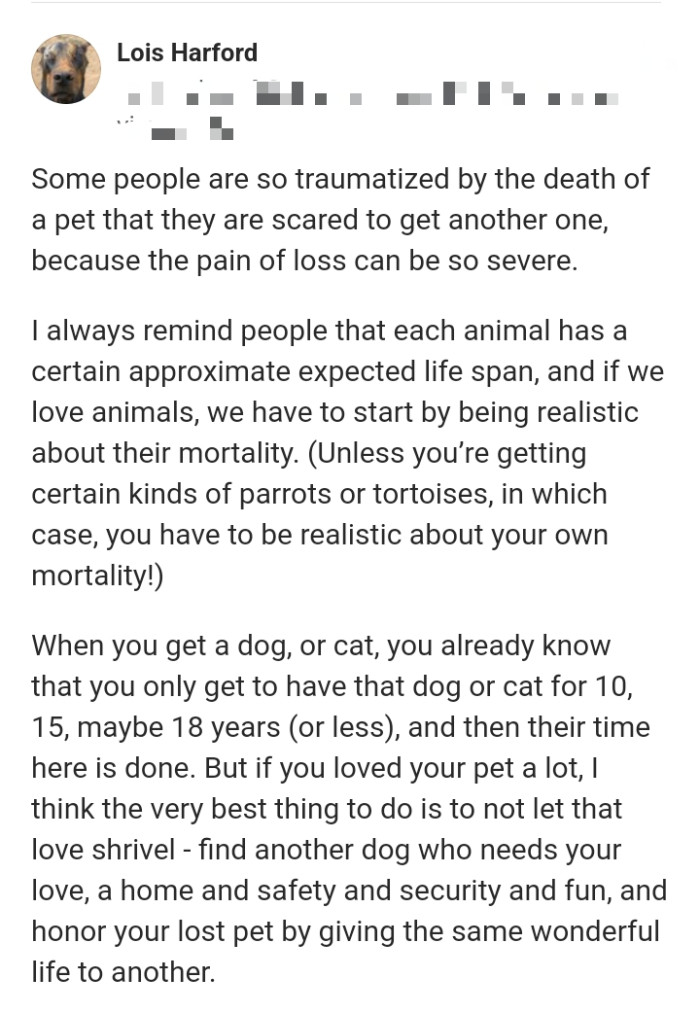
17. He wasn't meant to be an only dog
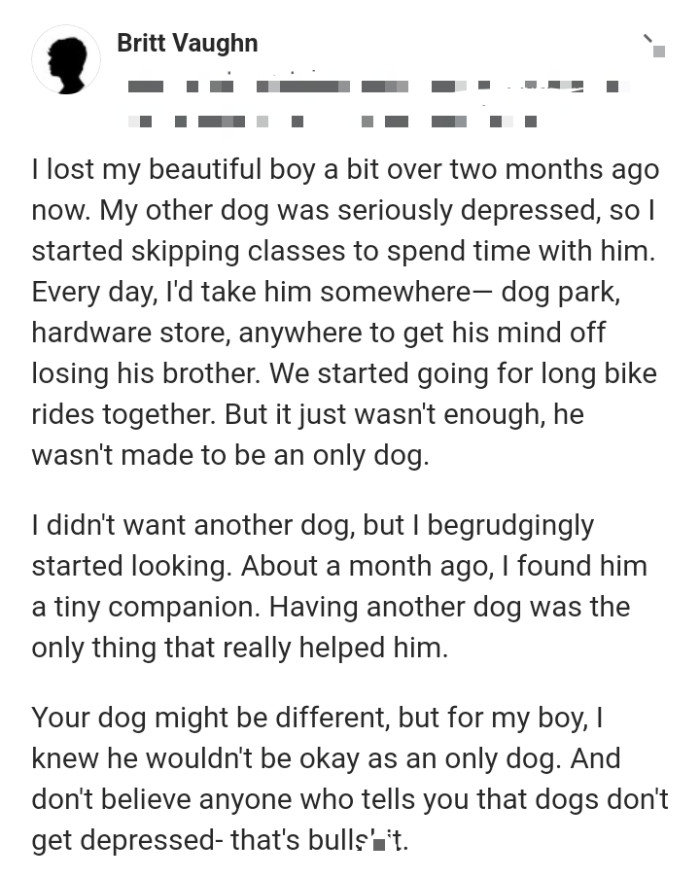
Finding ways to honor the memory of the departed pet can also aid in the healing process.
Studies indicate that creating rituals or memorials can provide closure and help individuals navigate their grief.
This allows for a continued connection with the lost pet while opening the heart for new love.
18. He's never going to take the dead dog's place
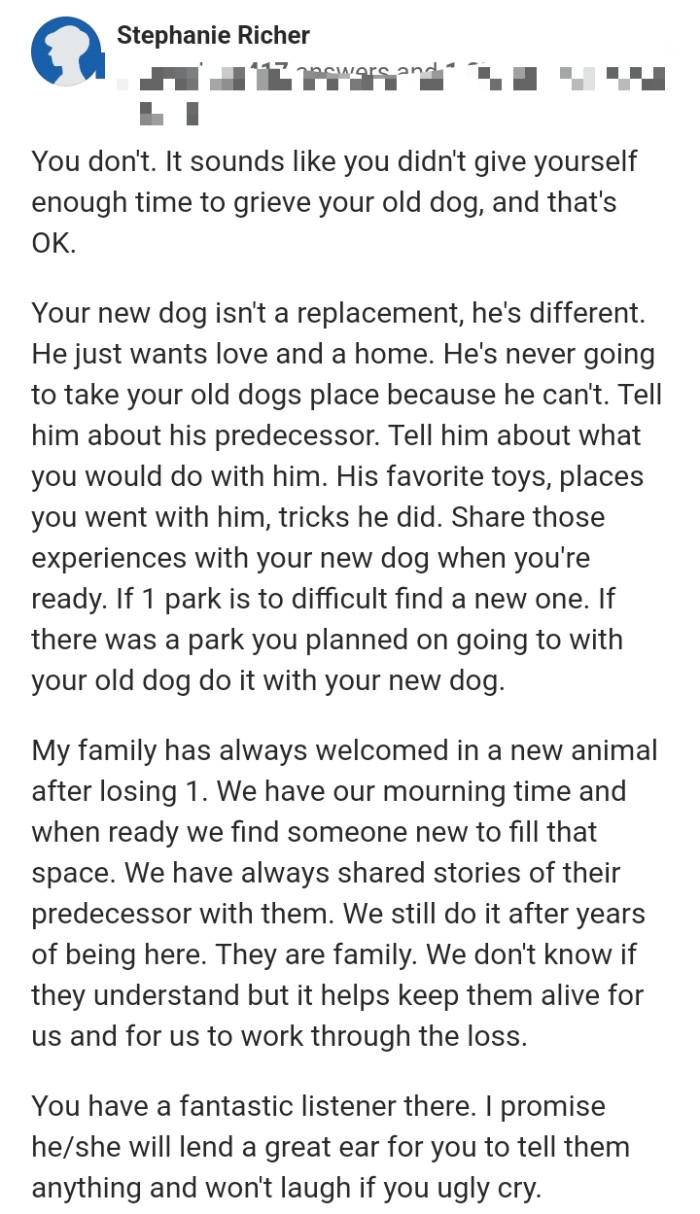
19. The OP should not feel guilty
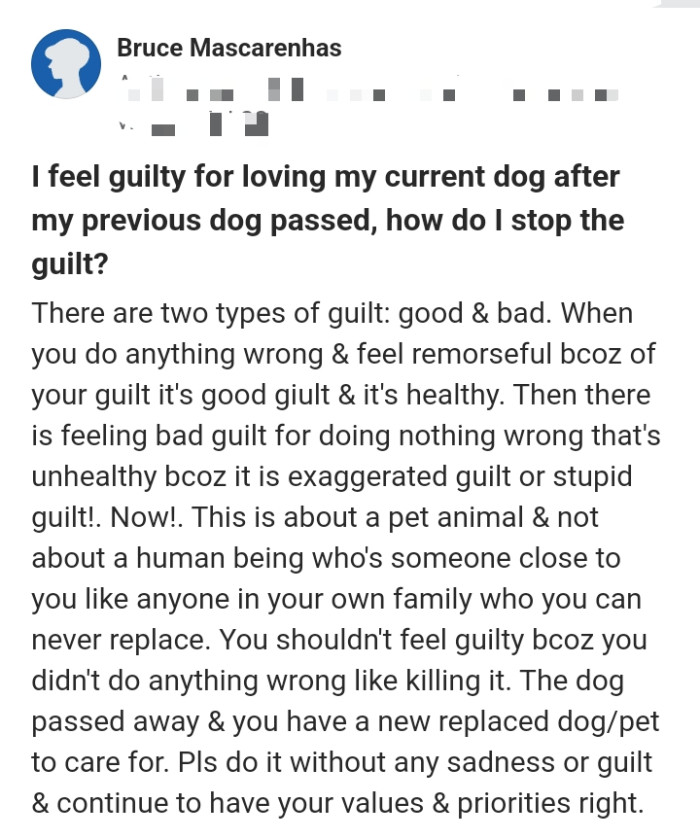
20. Showing lots of love towards each other
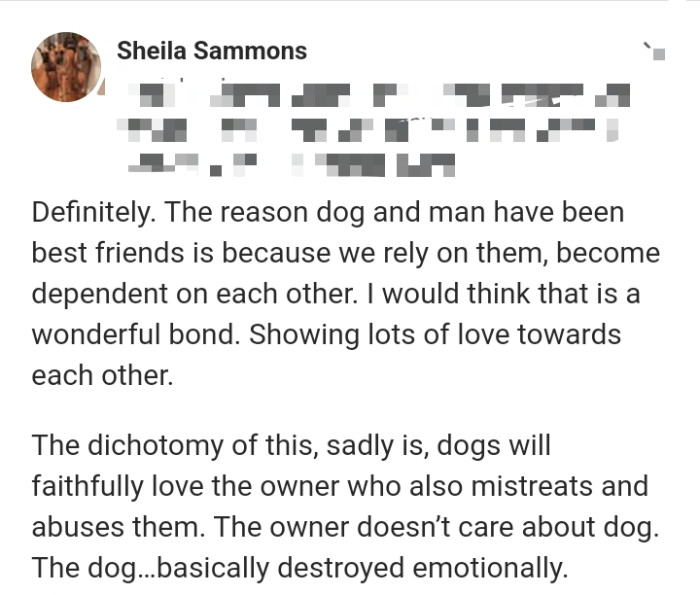
The Importance of Self-Compassion
Practicing self-compassion during the grieving process is essential for emotional well-being.
Research shows that self-compassionate individuals tend to experience lower levels of anxiety and depression when coping with loss.
Encouraging self-kindness and understanding can help mitigate feelings of guilt and promote a healthier grieving process.
21. Feeling guilty is part of being human
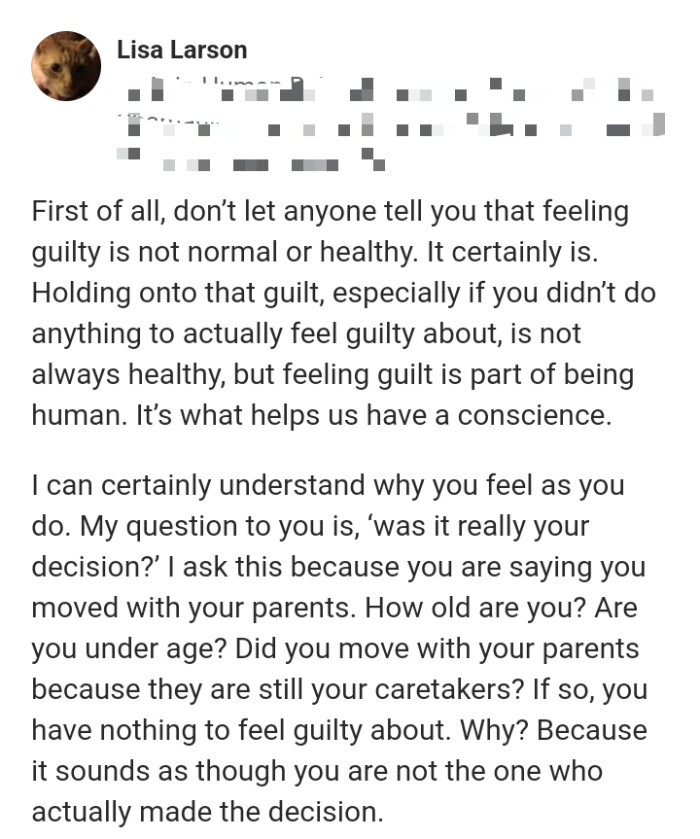
22. There is no guilt

There are people who merely wait a few days or weeks before getting a new dog, perhaps because they can't stand to be alone without their dogs for very long. Then, there are those who don't feel ready to adopt a new dog for several months or even years.
Some even come to the conclusion that they no longer want dogs. Everybody's situation is unique, and there isn't a single correct answer.
Psychological Analysis
This situation highlights the profound emotional bond individuals can have with their pets. It’s important for people to allow themselves to grieve and recognize that moving forward doesn’t diminish the love they had for their previous pets. Engaging in healthy mourning practices can facilitate healing while embracing new relationships.
Analysis generated by AI
Analysis & Alternative Approaches
Understanding the complexity of grief and attachment is essential for healing after the loss of a beloved pet. As highlighted by various studies, allowing oneself to grieve fully and embracing new relationships can promote emotional well-being. By honoring memories while creating new connections, individuals can navigate the grieving process more effectively.
Ultimately, navigating grief and guilt requires a combination of understanding, support, and self-compassion.
Therapeutic interventions focusing on grief counseling can provide valuable tools for managing these complex emotions.
Creating a supportive environment where individuals feel safe to express their feelings can significantly enhance the healing journey.
Psychological Analysis
This situation highlights the common struggle of moving on after the loss of a cherished pet. It's normal to feel guilt when forming new bonds, but understanding that love is not diminished can aid the healing process. Encouraging open conversations about grief can foster connection and support among those experiencing similar emotions.
Analysis generated by AI
Analysis & Alternative Approaches
Grief is a multifaceted journey often intertwined with feelings of guilt, especially when moving on after loss.
By fostering self-compassion and engaging in supportive networks, individuals can navigate these emotional challenges more effectively.
Therapeutic resources and community support can play a vital role in facilitating healing and acceptance.



